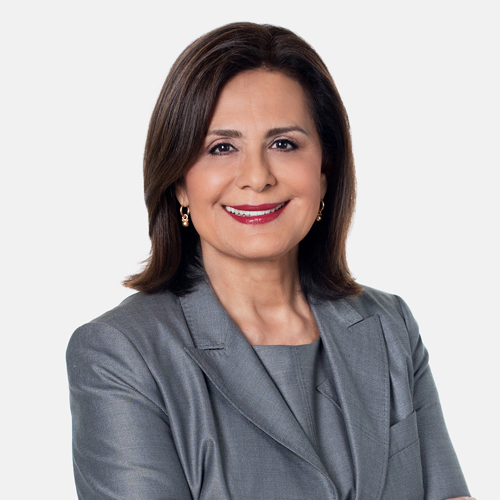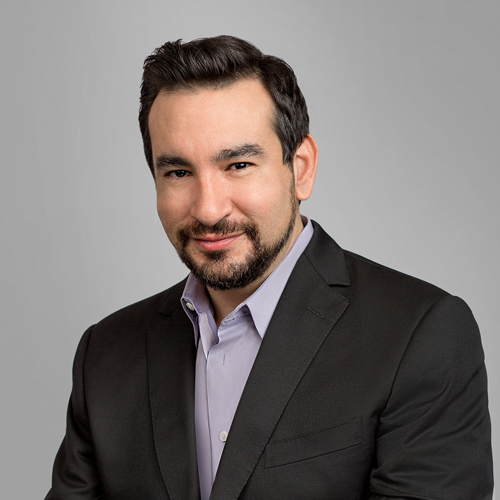George Santos always knew he wanted to be a doctor. “In high school, I volunteered to do first aid for parades and other functions. I even shadowed a midwife (my aunt) and helped deliver babies,” Santos says.
Santos planned on becoming a surgeon until a psychiatry rotation at the University of Texas Medical School at Houston pulled his interest in a new direction. He found he enjoyed the interaction with the patients. “In psychiatry, you’re more involved with patients’ lives, and you get to understand their whole life story,” Santos says. Today, he is the executive medical director and chief medical officer of Houston Behavioral Healthcare Hospital (HBHH), a new psychiatric facility that provides both inpatient and outpatient care for adults and adolescents.
Santos is particularly proud of the culture he and the hospital’s CEO, Lucinda DeBruce, have established at HBHH. Their three guiding principles are excellence for the sake of excellence, selfless giving, and fostering a family feeling among the staff. “Whenever we do an orientation, we have everyone mention something interesting about themselves. It helps create personal connections between colleagues,” Santos says.
Thanks to leadership commitment at HBHH, Santos says the staff is fully committed to the culture as well. “At a recent open house, the staff really sold the hospital to potential employees. Our staff has recruited more people than any advertisement ever could,” Santos says.
Before the hospital opened, Santos hired four social-work students from a local university to pose as patients, go through the system for 24 hours, then report on their experience. “The students’ feedback helped us develop better processes, forms, and mechanisms for assessing and treating patients. Because the staff is involved in the development of the processes we use, they feel ownership,” Santos says.
In mental healthcare, it’s important to look at both social and cultural contexts of a patient’s story. With that in mind, Dr. Santos gives lectures on the art of interviewing patients. “Interviewing patients often becomes mechanical, like taking a census. But with psychiatric patients, you have to look beyond the symptoms to see the broader story,” Santos says. “You can’t interview a highly educated person from an American city the same way you interview someone with very little formal schooling from rural Central America.”

A major challenge facing providers of psychiatric services in Houston is the extremely high uninsured rate in the state. “Texas has become a very conservative state that doesn’t support the Affordable Care Act and has not expanded Medicaid coverage. This means that by time the patients come to us, they are very sick,” Santos says.
“In Houston, the Ben Taub Hospital and Harris County Psychiatric Center are the only clinics funded to treat indigent mentally-ill patients, and they usually have very few beds available. These indigent patients then need to be admitted to private facilities that receive no funding to treat people without insurance. Since these patients have no insurance, the facilities have to balance providing good care with remaining operational.”
Another issue of concern to Santos is the corporate practice of psychiatry. Many of the hospitals are now managed by a relatively small number of corporate entities. Unfortunately, their focus is often more on a business model than a clinical model. “Signature Healthcare, which runs HBHH, definitely has a clinical focus. I meet with the other medical directors in the company on a regular basis. It’s refreshing,” Santos says.
Over the years, Dr. Santos has made a considerable amount of progress in the legislative area. He served for about 10 years on the Harris County Hospital District Board of Managers, one of the largest public health systems in the country. He regularly testifies on legislative matters regarding medicine and psychiatry, and is currently working on legislation to ban weapons in psychiatric hospitals.
An experience that Dr. Santos remembers as “phenomenal, terrifying, and rewarding” was when Hurricane Katrina evacuees were sent to Houston. Santos was tasked with helping to set up an emergency mental-health clinic for the evacuees. “We quickly set up a 12 to 15 bed clinic at the Reliance Center, but no one came. We realized that the New Orleans Superdome experience had been so traumatic that no one wanted to leave their cots,” Santos says. “So, we formed three roving teams and headed to the Houston Astrodome, where the evacuees were staying. I heard some horrific stories and saw children drawing some truly jarring images, but we were really able to connect with a community in need.”
Working as a consultant for Homeland Security also opened his eyes. He learned that illegal immigrants were being detained in facilities around the country. Many were mentally ill and there was little help available. “At my former hospital, we set up a special unit and took in a dozen of their sickest. At first, they behaved like prisoners. But eventually they became more comfortable and we managed to do some great work with some really sick people,” Santos says. “We were also able to reconnect people who had been in detention for years with their families.”
Since the 1960s, the focus in mental healthcare has switched to community-based care, but the money hasn’t flowed to provide community-based services.
“The largest mental health institution in Texas is the jail system,” Santos says. “About 25 to 30 percent of all inmates in the Texas prison system are active psychiatric patients on psychiatric medications.” What Santos would like to see in the future is mental health parity in real terms and the expansion of Medicaid—which would mean earlier intervention.
“We also need more psychiatrists—particularly for children—and more psychiatric beds,” he says.
Santos says he can’t imagine ever retiring. Right now, he’s focused on developing HBHH as a premier hospital for psychiatric care and on connecting with the community through early intervention programs, parenting classes, and inpatient and outpatient services. “We’re well on our way to making that happen,” he says.

